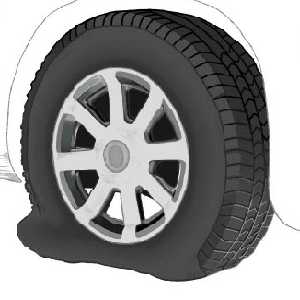Uroboros
One thing I find curious about the advice I give job seekers is that it’s advice I try to follow myself in running a small business.
While being similar to advice I read from business coaches who actually know how to run businesses (not the “I’ll help you 100x your business over night, to 7 figures, including decimal points” types.)
I also know this - the market has changed significantly and constantly in the past few years, it’s changing now, and it will change again.
So, if advice for a job search might be helpful for running a business.
Or if that same advice might be what you really need, should you find yourself unexpectedly out of work in a few weeks’ time.
Then you might find today’s article for Jobseeker Basics an interesting read:
Ouroboros is a mythological snake that perpetually eats its own tail.
It’s the notion things never disappear, they change and are reborn.
In the same way, some of the constructive activities you do at work can support being out of work, while the skills you’ve learnt in a job search can be used to enhance work.
Today I’ll look at
-
Using your business skills in your job search
-
An annual career MOT to check what you are doing reflects your values and aspirations
-
Keeping your job search emergency kit ready at all times
-
Applying skills learnt in a job search to enhance your work
Everything feeds into itself in a way that can improve your odds at work, and when unemployed.
Using your business skills in your job search
“Oh, I do that at work, but I never thought to do that for myself,” said a talent acquisition copywriter when he was between projects.
I’d told him to promote himself on LinkedIn using his copywriting skills, and make himself a product with features and benefits.
This is the thing. While starting a job search for the first time seems alien, you already have skills you can effectively use to improve your odds straight away.
-
If you're in marketing, form a marketing strategy where you are the product. Go integrated appropriate multichannel (that’s how I recruit too).
-
If you are in sales, sell yourself. Talk to people, network, build relationships, doorknock, cold pitch.
-
If you are a project manager set a clear strategy with correct documentation, plan-do-check-act, use your methodology.
We all have skills that can apply to a job search, so while it may feel an alien skill to have to learn, you aren't starting from scratch.
What skills benefit your work most? How might you adopt them into this new job called looking for work?
An annual career MOT to check what you are doing reflects your values and aspirations
Which if you haven’t done at least at the start of your job search, you should do now.
Redundancy can often be an opportunity to try something brand new, without the baggage of your previous job.
This is because it breaks the inertia of your career, one where you are pulled forward by the needs of your business and job, as much as by what you think you want.
Loyalty and hard work are mostly a good thing, yet can work against you if you make all those small compromises required to fit in.
At some point down the line, the you that you want to be diverges so much from the work you, it becomes a crisis that needs resolving.
Yet, this disconnect between your ideals and what’s actually happening should be identified much earlier.
In the same way your boss will do an annual review, so too should you.
Look at all the points that make up where you want and where you need to be in your career, especially as life invariable changes in the background:
-
working arrangement and commute
-
salary and overall compensation
-
how the culture at work reflects your values as a person
-
how the future looks there compared to where you want to be
-
talk to your nearest and dearest and ask them if you are happy at work
That last point is something I hear from time to time - our emotions are often better reflect by those around us, than we can judge for ourselves.
The danger of not doing this is that, when you do find yourself out of work, you don’t take advantage of this break in career inertia.
If you go for the same jobs that were holding you back, will you be fulfilled?
Identity work is so important, whether you are unemployed or employed.
Of course, sometimes you just need money to pay the bills - that’s fine too, as long as you do it intentionally.
Keeping your job search emergency kit ready at all times
The first thing many people do when they find themselves out of work is update their CV.
Quite hard to do it meaningfully, when you have six years of experience to unpick, so often it’s easier to put your job description in.
Why not update your CV instead with every notable achievement (supported by numbers), every change in context and job title?
And your LinkedIn profile too.
Don’t worry about length, this is a personal master CV you can refer back too at any point, and is the bible of your career. These achievements also serve as reminders for interviews.
You’ll also want to keep up to speed with all the contacts you made in your last job search, so they are easily accessible when needed. Some people call this networking.
That identity work above is helpful too, so you can be laser focused at the right times.
While keeping up to speed with LinkedIn content too, whether writing or responding.
”But I don’t want to be seen to be looking for work when I’m not!”
Which leads me to
Applying skills learnt in a job search to enhance your work
I’d wager many long-term jobseekers that are keen to learn will have developed networking, interviewing and even content writing skills when out of work.
Why not apply the same skills for work?
-
Instead of writing posts, messages and comments to support looking for work… write the same to support your job. What subjects would help communicating about online, that supports the work you do?
-
Network with peers and thought leaders, gain ideas and share ideas - done judiciously, how wouldn’t this help you in your work?
-
Interviews are sales or business meetings, where you put your best foot forward while trying to gain objective information about whether you should buy. A useful skill in any context.
These are all qualities that can (if you choose) enhance what you do at work. Better yet, should the worst happen again, you’re already ahead of the game in the next job search.
And I think there’s only one thing we can be certain of in this economy - best be ready for the uncertain.
Thanks for reading.
Regards,
Greg”
p.s. I might have some availability for new recruitment projects coming up in a couple of weeks time. Drop me a line if you have a UK key hire that needs righting, recruitment writing that needs writing, or process improvement that needs uh improving.

